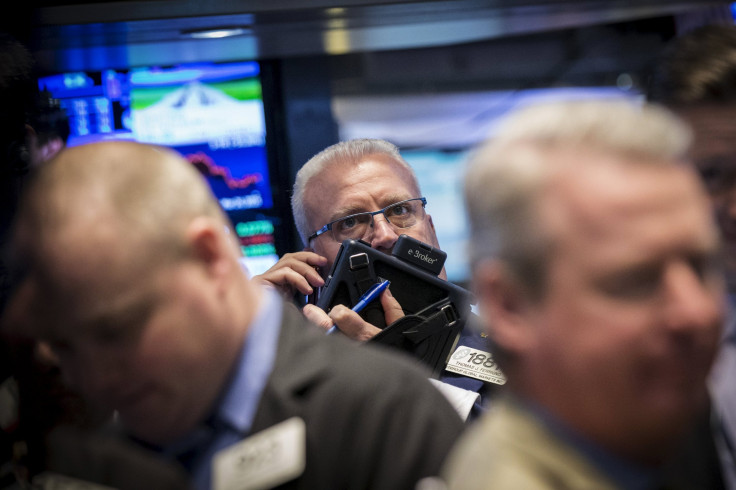Dow Jones Industrial Average Drops 100 Points; Oil Prices Surge After Saudi Arabia Launches Airstrikes In Yemen

U.S. stocks traded sharply lower Thursday morning, with the blue-chip Dow Jones Industrial Average tumbling more than 100 points. Investor sentiment was affected as tensions in the Middle East escalated overnight, triggering fears over crude oil supply. Saudi Arabia began airstrikes in Yemen, sending oil prices surging as much as 6 percent.
In morning trading Thursday, the Dow Jones Industrial Average (INDEXDJX:.DJI), which measures the share prices of 30 large industrial companies, dropped 115.51 points, or 0.65 percent, to 17,603.03. The Standard & Poor's 500 (INDEXNASDAQ:.IXIC) lost 13.04 points, or 0.63 percent, to 2,048.65. The Nasdaq composite (INDEXSP:.INX) fell 44.17 points, or 0.87 percent, to 4,834.31.
Airstrikes from Saudi Arabia and its Persian Gulf allies raised concerns about the security of Middle East oil shipments. Yemen is on the Bab el-Mandeb Strait, one of the world’s main transit points for seaborne trade. In morning trading, Brent crude, the benchmark for global oil prices, rose more than 1.5 percent to $57.98 a barrel, for May 15 delivery on the London ICE Futures Exchange. West Texas Intermediate crude, the benchmark for U.S. oil prices, 2.8 percent to $50.59 a barrel for May 15 delivery on the New York Mercantile Exchange.
U.S. stocks edged lower in premarket trading after Atlanta Federal Reserve President Dennis Lockhart warned that U.S. economic growth in the first quarter looks "very soft," in a comment to CNBC ahead of his speech at an investment education conference in Detroit. The Fed policymaker also said an interest rate hike from the central bank should come in the middle of the year or later.
Meanwhile, St. Louis Federal Reserve President James Bullard said now may be a good time to start normalizing U.S. monetary policy, during a speech on monetary policy in Frankfurt, Germany, Thursday. Bullard is not a voting member on the Federal Open Market Committee this year, the central bank's board that determines the direction of monetary policy. Lockhart is a voting member in 2015.
Dow component Cisco Systems Inc. (NASDAQ:CSCO) dropped more than 2 percent Thursday to $26.89, leading most blue-chips lower, while Exxon Mobil Corporation (NYSE:XOM) was the largest gainer in the index, advancing more than 0.5 percent to $85.31.
Shares of Lululemon Athletica Inc. (NASDAQ:LULU) jumped more than 4 percent to $63.65 after the athletic apparel retailer reported fourth-quarter earnings that topped forecasts, beating estimates by 5 cents with quarterly profit of 78 cents per share. But the company’s forecast for the current quarter fell short of Wall Street estimates.
Separately, the number of Americans filing unemployment benefits fell to a five-week low last week after jobless claims dropped 9,000 to a seasonally adjusted 282,000 for the week ended March 21, the Labor Department said Thursday. Economists had expected claims to decline to 290,000 last week, according to analysts polled by Thomson Reuters.
© Copyright IBTimes 2024. All rights reserved.






















